|
Four years ago today my brother died of a heroin overdose. Maybe not died - that could have happened days earlier. We're not clear on that. My brother lived in Colorado, my parents in Pennsylvania. I had moved down to Tennessee to be with T, so none of us could drop by Gunnar's place to check on him, even if we had been concerned. I found out only later that my brother hadn't answered his friends' calls for a couple days before he was found, the needle still in his belly. He didn't answer my call that day, four years ago, a few hours before his body was discovered. I didn't think anything of it. I was sure he was off somewhere in the summer sun with his dog, happy and laughing. Gunnar experienced joy just as fully and deeply as he did pain. Like me.
Before I allowed his friends in to clean out his apartment I spoke with the detective investigating his death, a kind man, who never once made us feel that Gunnar was just another dead junkie to him. I told him I had a very difficult question, but I needed him to be honest with me. I wasn't crying. I don't think my voice even broke as I asked him what the condition of my brother's body was when he was found. Would it be awful if his friends came to clean his apartment? I couldn't send these people, most of whom I knew, some of whom I loved, into that situation. No, the detective answered back. The fan in his bedroom had been on. It had been cool in there. They would be fine. Waiting for the detective to answer that question was not the worst moment of all the awful moments surrounding my brother's death. At that point I was riding a wave of dull, dumb numbness that even the term decomposition - never spoken aloud, but squatting like a poisonous toad in the back of my brain - couldn't quite pierce. No, the worst was the moment my father told me, over the phone, him in Pennsylvania, me in Tennessee, that my brother was dead. He said he didn't know how it had happened yet, the police officer who came to the door had just told him Gunnar had been found in his bed. I remember it took a bit for me to get that my dad was telling me my brother was gone. Irreversibly gone. Forever gone. T was standing before me, holding my arms, looking into my eyes. I whispered to him that Gunnar was dead and he helped slow my collapse to the floor. I hadn't quite understood the meaning of the word keening until that I heard the sounds that came from me then, an unholy mix of sobbing and screaming and the word "no" repeated over and over again. I cried until my voice was gone. I cried until my face was swollen. I don't know that I've ever really stopped crying. The tears are always there now, ready to spill over whether I'm happy or sad. I moved back into my parents' house after Gunnar's death, T joining me later. The grief I endured over the next months didn't lessen so much as mutate. I felt infested with it, like it had metastasized from my heart, creeping into my blood. My bones. The pain that had once been sharp, so sharp it made me double over, curl into myself with the force of it, turned into a relentless ache. I tried to alleviate it with therapy, with writing about my brother's death and the sorrow I was experiencing. I don't know that it helped. I didn't try to lose myself in drugs or booze or sex. When Gunnar died I was more emotionally stable than I'd ever been. But I still look back on that time with wonderment, amazed that his loss didn't destroy me. I knew that my brother's fate could have - should have, maybe - been my own. My end could have come at so many times, in so many ways. Suicide. Sex with a stranger who turned out to be a monster. An accident borne of self-destructive recklessness. Overdose. For decades I invited it all. But I dodged what Gunnar couldn't and I don't know why. Four years out from his death and I still sometimes wonder in my worst moments why I made it and Gunnar didn't. If I had died, would Gunnar have lived? Would he have gotten the help he looked for but never found, shocked sober and sane by my loss? Maybe part of the bottomless grief I feel is borne of survivor's guilt. Or maybe it's because I didn't try to save my brother, not really. I never visited him in the year between the admission of his heroin and crack use - just to me, not to our parents or his friends - and his death. I called him, checked to make sure he was still clean over a phone line from a thousand miles away, but I didn't get on a plane to go see him. My relationship with T was already a nightmare. I was already dying a little, losing who I was in order to be what he wanted. I believed that if I left T to go to Colorado he would make me pay for it, withdrawing his affection, what passed for his love. I was exhausted and confused and I chose T over my brother. I don't know how I live with this. I never got to tell Gunnar how brilliant and beautiful I thought he was. He knew I loved him, at least I hope he did, but I don't know if he ever knew how dazzled I was by him, by his charisma and humor, his intellect and generosity. That haunts me. Gunnar and I loved each other and battled each other in equal measure, two people too alike not to clash. But he was the one person I believed would be with me my entire life. My parents are in their 80s, in failing health. After they're gone I'll have no one. So I suppose my grief is not only for Gunnar, but for myself. For the years we should have ahead together, but don't. For the loneliness I'll soon face, and the longing for a family that no longer exists. People keep telling me, well-meaning people, people I love, that my grief will lessen. I don't believe them. My grief resides in a small, secret place tucked inside of me, where no one can go. I won't allow it to be made weak, or diminished. My grief will endure, burning cold and bright because I owe it to my brother to bear it.
23 Comments
We went easy on our trek through the High Atlas. Slowly and carefully. I was climbing with someone who'd never done anything of the sort and it was enormously difficult for them, not the least because they were terrified of heights. I didn’t know that until we were well on the mule path, when we discovered how steep the drop from it was. Maybe we should have asked Ahmed, our guide, to take us back, but I was already gone, blissful and selfish. Stoned on the discovery that I still belong in the mountains. Or maybe it’s more that I belong to them.
The joy that I felt as the land fell away beside the path, opening up the view to the Berber villages thousands of feet below, was undistilled and overwhelming. It was almost impossible to rein myself in - I wanted to feel my heart thrum and my breath hasten and the muscles in my legs grow hard and unyielding as they struggled to carry me onward. I tried to slacken my pace, but I often found myself so far ahead of the others I had to stop and wait for them. I’d stiffen if I sat, so I remained standing, looking at Morocco spilling out beneath me. It was my first time in the mountains since I failed to summit Aconcagua. I don’t know that I can count the slog up Little Malene in Greenland a couple weeks back, as difficult as it was. I never felt immersed in that landscape the way I did in the High Atlas range. We didn’t venture deep into the outback in frozen Greenland, though the climb was harder, with a sharper elevation gain. The ascent in Morocco was initially gradual. The toughest part for anyone with acrophobia, like the other trekker I was with, was the slender path, and the fear of the long fall if you stepped off of it. Maybe I burned through any fear of falling at the beginning of the trek. I think the greatest concern anyone has for me - at least I’ve been told this, often with as much consternation as love - is that I’m reckless. That I take too many chances, don’t consider the consequences. I suppose it’s true; I’ve been trying to live a more careful life. I don’t know that I’m any good at it. Because after Ahmed gleefully scrambled a few feet up what was more a wall and less a hill, returning to earth dusting his hands with a grin, I challenged him to take me up it. He told me it was dangerous, that the path up wasn’t even a mule trail. It was only for mountain goats and mountain guides, specifically those who had grown up in the High Atlas, like him. But I pushed and Ahmed eventually gave in and up we went. I was fine ascending, even as we climbed hand over feet, 10 feet, 20 feet, 30 feet and even higher. I think I was at one point four or five stories up, totally unsecured, with no one belaying me. The precariousness of my situation didn’t hit me until we needed to start moving across the face of the incline. We left the path, which wound higher, and it made me feel every step was insecure. If I’d fallen I would have bounced until I hit the road that was far enough beneath me I’d have been killed, or at least badly broken. It crossed my mind that I could become a very sad and even more stupid cautionary story about a woman who pushed it too far once too often. After I lost my nerve I spent some time sort of shuffling on my ass across the dirt, stone and scrub, until I felt more stable and could stand, a bit wobbly and ever so carefully, again. In another 10 minutes we'd picked our way off the hill, onto the road. We continued on, methodically trekking toward the Tizi Mzzik Pass, 3,000 feet higher and six miles away. I didn’t feel any elevation sickness along the way, although we eventually reached more than 8,000 feet in elevation. I’m not sure if I should be heartened by that, when it was acute mountain sickness that got me booted off Aconcagua. But I am. I haven’t trained, not once, since coming down from Aconcagua in February, but I felt so strong during the trek. The last section was very steep, a merciless switchback that I climbed slowly, but without getting winded. My steps were sure and I worked my walking sticks well, in proper rhythm with my stride, even as we raced against the encroaching darkness to make it off the mountainside before full night fell. It felt right, my being up there, right the way it is when you fall in love, or the perfect song comes on as you’re driving fast down a back road in summertime, the sun bright and the wind soft. It felt, I suppose, like coming home. There's something about this village. I feel pulled to Gaucin, bonded to it already, even after only two days, like I just might want to stay awhile, or forever. Perched high in the mountains, it's made of washed-white buildings dating back to the days of the Moors, with a ruined Roman castle watching over the whole thing. On a good day, the Rock of Gibraltar pops up in the distance, beyond the blue hillsides and green fields of Andalusia, Morocco beckoning from further off. The sun seems bright as an X-ray here, like you might be able to see bones beneath flesh if you peered hard enough, but the breeze is strong and the spring temperatures cool.
Or, more specifically, it's not only the dude. I'm no longer a depressed mess for a myriad of reasons, not simply that I'm dating what my adviser and bestie called "a hot young stud with a big dick." Actually, the big dick part may be my words. Serafice and I were half-joking anyway, because objectifying M is not something I do, or want to do. (Unless it's part of a sex game.) He's a good guy. At least I'm trying to believe he's a good guy.
I've learned you come out of a toxic relationship damaged in ways you only really discover when you dip your toes into another relationship. So, trust is an ability I'm still trying to resurrect within myself, along with even the most basic communication skills. Sometimes I listen to myself talking to M and think, "Why did my I.Q. just plunge 50 points? Why am I yammering??" Sometimes I think, "I can't do this. I'll take a lifetime of one night stands over having to be even the least bit vulnerable with anyone ever again." And that includes M, with whom I seem to have a pretty awesome thing going. Dating - Christ, I hate that word. What does it even mean? - him is fun. He doesn't make me feel badly about myself. He doesn't make me feel badly about anything, actually. This whole thing has been really easy so far, with no angst or drama or craziness, which might make me run far, far away. Like, Antarctica far away. Hey, I've been meaning to get there. Some days a gig swabbing floors in a station at the South Pole dedicated to researching penguins or whatever sounds absolutely perfect. But less so lately. And that's not just because of M. Brain chemistry probably has something to do with it - after all, they tell me I'm bipolar. I guess something in my head finally jigged after jagging for the past six months or so, and blamo, I'm feeling a lot more chipper. Aconcagua figures into all this, too - coming down from that mountain changed me. It made me face myself, just like those two days alone in Mendoza did. There's nothing that brings you closer to the elemental truth of who you are like traveling solo. Fact it, I think I like myself best when I'm tucked up alone in some far-flung place. The voices in my head quiet and I stop believing that I have to prove I'm worthy of...everything. Love, success. Joy. I can just be me. So, it's not just M. I worked too hard at carving out some small bit of peace for myself to just hand over my happiness to the next guy who comes along, no matter how swell I think he is, or how goonily I grin when we so much as talk on the phone, like we just did. Prior to my breakup with T, I had spent my entire life - and I mean my whole, entire life, from about age 16 until a few weeks before I turned 50 - coupled. I went from one relationship to another pretty much without pause, absolutely terrified to be alone. That's part of Borderline Personality Disorder, with which I've also been diagnosed. That's the heart of it, actually. I don't know if I thought I'd spontaneously combust if I weren't partnered - it sounds like the joke it's meant to be, but honestly, the fear felt that primal. Maybe I was just afraid I wouldn't be able to take care of myself. That I couldn't be trusted, that I'd end up homeless, or in an institution. Maybe it was because I was certain that without the distraction a relationship brings I'd drown in pain, that relentless pain I've been feeling since I was a teenager. Of course, if you're a woman you don't have to have a mood or personality disorder to believe that you damn well better be with a man if you're going to have any worth at all, to yourself and society, too. It wasn't until 1974 that women were allowed to apply for credit in this country - and it wasn't until 1993 that marital rape became criminalized in all 50 states. 1993. Let that sink in. Of course, North Carolina still has a law on the books that allows men to continue having sex with (raping) a woman who has given consent EVEN IF SHE TELLS HIM TO STOP LATER. Basically, in the Tar Heel State a woman cannot change her mind about having sex. Because apparently men getting off is a lot more important there than a woman's right to say, "You know what? I don't like this. Stop." How is it possible that women aren't rioting in the streets this minute? Let's take a moment to remember the song John Lennon wrote about women's place in society. If you don't know it, look it up. I think he nails it. I suppose I should make it clear now that although I've learned the invaluable lesson that I can survive alone it doesn't mean that this is something I actually want to do. I've had a lot of women reach out to me since I started this blog to tell that they've been without a man for X amount of time and have "never felt happier." Good on you, guys. For real. You're far more evolved than me. Because I don't ever, ever want to go another year without sex (or cuddling, or kissing, or getting a phone call that makes me goonily grin) again. Hell, I don't even want to go a month without that stuff, although I will, all but the phone call, because I'm going to be traveling for 5 or so weeks beginning next month. And by the way, when I hesitantly told M about how long I'd be away, do you know there was no guilt trip, no recriminations, no irritation, nothing but giggling? Because I said I felt like I was going away to war or something, the way I was being all dramatic, and he said, "Yes, Jill, I will wait for you." And then we laughed. That could not be more different than the absolute bullshit I went through with T. And that goes an awful long way toward building trust. And communication skills. And maybe even unwrapping another layer of bandage from my still-bruised-but-almost-healed heart. So here I am, holed up in this funky little hotel in Greensburg, Pennsylvania, right outside of Pittsburgh. I'm here to meet my new lover, or paramour as he likes to be called. M lives in Pittsburgh; I'm in State College. He came to see me last weekend, this weekend I'm here to see him. Because we're both caregivers, living with our parents, if we want to fuck, we need to get a hotel room. That's okay - I think that excites us both.
The place I picked to meet is perfect. Once respectable, maybe even upscale, this inn has grown weary around the edges - the carpet a bit stained, the walls marred here and there by past visitors, careless with their bags, hurrying on their way to somewhere else. It's like a faded celebrity. Not quite sad, but no longer vibrant, vital. I love it. Because the hotel doesn't entice prospective guests the way it once did, the rooms are cheap and I was able to book us a suite. It's like the public spaces, charming and frayed and maybe a little mysterious, too. The wood of the dining room table has been worn to white in spots, but there's a massive whirlpool tub backed by mirrors in the bathroom and a working gas fireplace I'm sitting in front of right now. The heater is waging a losing battle against the chill of the rooms, probably thanks to the big arched windows overlooking the highway that I believe M plans to fuck me against at some point over the next two days. M. He's exactly what I need now, as if he were dropped out of heaven by the dating gods. Young, at least much younger than I am, taller than me by half a foot (a rarity for a woman 5'9") and spectacularly hung - enough so that he hurt me our first time together, a little. I actually saw my gynecologist today to make sure everything is in working order. She told me that I'm in good shape, red and plump and juicy with no signs of vaginal atrophy, a terrible affliction which hits more than 60 percent of women in postmenopause and can cause dryness, painful sex and all kinds of other evil bullshit like incontinence and clitoral shrinkage. I plan to absolutely not ever have vaginal atrophy. The best defense against it, by the way, is lots and lots of sex. Which is actually what I need in order to stretch everything out and end my newfound pseudo-virginity, according to my doc. Lots and lots of sex. M is happy with this prescription and I am, too. We both are of a mind to push each other's limits sexually; there's much we can teach each other and learn together, too. I told him this time to leave deeper bruises with his mouth, purple, black. He agreed. I feel set free, and I guess I have been - my ex kept me caged in more ways than one. I don't know what exactly I like yet or how much of it I want. But to be able to discover what pleases me, safely, with someone I very much enjoy, who arouses me with merely the sound of his voice on the phone - I know how lucky I am. My life feels absolutely new. I came off of Aconcagua, it turns out, with exactly what I needed. Somehow the mountain taught me that don't need to ever be anyone other that who I am. I will never again apologize for being too boisterous, too sexy, too needy, too loud, too angry, too flashy, too prideful, too adventurous, too strong, too weak, too emotional. I'm 51 years old. I've got red curls and long legs and a big mouth. I laugh loud, I love sex. There isn't a country I wouldn't visit. I want to climb mountains. Still. I'm writing a book and I'll sell my soul to make it great. I will not ever, ever seek, or find comfort or strength in invisibility. That's a big thing now - older women, in their 60s, maybe even my age? - embracing how little they appeal, or matter, or are simply seen in every way, but especially sexually. Frances McDormand talked about it positively in a New York Times interview, which disappointed me. With age comes a fuck-it-all freedom in which I revel, but it is the freedom of someone who has finally, after a lifetime of pain, learned to love herself. Or at least like herself. I will be loud and proud, wearing short skirts and shiny lips for as long as I wish, which will probably be forever. As a sometime lover and longtime friend recently told me, "Jill, you'll be talking about orgasms when you're 90." Accepting invisibility of any type in this fucked-up patriarchal society feels like capitulation, at least to me. But then I've always seen all the world as a stage. And if we're merely actors, we can be anyone we want. Why not be women in our 40s, 50s, 60s and beyond, who teach the world that sexuality doesn't end with fertility, or firm breasts or even with the onset of the dreaded vaginal atrophy - which, if this weren't a patriarchy, we'd all know a lot more about. (Like, for example, that it can be reversed with estrogen cream or pills.) I spent a year disconnected from my sexuality while I tried to believe I was a person worthy of love and lust and success and satisfaction and the other good things life can bring. I don't know if anyone looked at me twice in all that time. Since coming back from Argentina more happy than I've been in years, since beginning to date M, I see men give me appraising glances all the time, which I return with a grin. The only invisibility I want to know about is Wonder Woman's plane. I've met someone. It happened, the way it always seems to, when I was looking the other way. Innocently minding my own business, getting ready (or so I thought), to summit the highest mountain outside of Asia. I was planning to start dating again when I returned, to maybe try some dating websites, a prospect that I find only slightly more thrilling than getting my teeth cleaned by a dental hygienist hopped on speed and mescal. But this man, who I met briefly a few years ago - I'm not sure we were even properly introduced - and know from Facebook, where we've followed each other's doings since that time, started messaging me a week or two before I left for Argentina.
It's been one week to the day since I was banished from Aconcagua, summarily sent down from it, like an inept baseball player kicked from the major league to the minors. I haven't really had time to process what happened, or to understand what it ultimately means to my life, other than to label it a failure. After all, I wanted something - to reach the tippy-top of the highest mountain outside of Asia - and it didn't happen. I didn't summit Aconcagua. Hell, I didn't even get close. I didn't even make it past the approach camp, a victim of mountain sickness, according the physician who fretted over my vitals before announcing, with great gentleness, that I was in jeopardy and would continue to be until I descended.
That's failure and I will always label it as such, which seems to confound and annoy just about everyone around me. I've heard this week that I can't be a failure because I tried to accomplish something most wouldn't, because it was my body that gave out and not my will, because this kind of setback is just a part of mountaineering and because, simply, I didn't die. I understand the reasoning behind all that, and am grateful for the kindness that led my friends and fans to share these thoughts with me. I just don't agree. I had a goal. I didn't achieve that goal. I failed. Why are we so afraid of failure in this country? Why do we twist and turn the situation in which we failed upside down and all around, spinning it like a kid appraising a package on Christmas morning, just so we can call it anything but what it is? The way I see it - and I'm quoting President Obama here - "If you are living life to the fullest, you will fail." As Oprah Winfrey says, "If you're constantly raising the bar, if you're constantly pushing yourself, higher, higher, higher, the law of averages, not to mention the myth of Icarus, predicts you will at some point fall." And that's okay. Because the alternative, to not even try, is far worse for me. I don't mean to sound like Dr. Phil or Tony Robbins or Brene Brown, as much as I love her, or Yogi Bear or the Dalai Lama himself. I don't feel comfortable making pronouncements about how anyone else should live. But for me, passion, adventure, excitement, which I now get mostly from pushing myself damn hard and then harder and harder still, make life bearable. If I didn't try - be it anything from climbing a mountain to moving to a country where I know no one on not more than a whim - there's a chance I might go mad. Or at least back to the self-destructive ways I once utilized to get my fix of chaos, the metaphorical equivalents of driving too fast in a big-motored car down a dark highway, fucked up on mania and dope and lust, the thick fingers of the dangerous man perched beside me in the passenger seat creeping up my naked thigh. Or, actually, the literal equivalents, too. I'm not a great white shark - I don't need to be in constant motion to survive, although I have some former lovers I expect would disagree on both counts. But I do need something to work toward. Looking ahead keeps me sane. I need to challenge myself, the more viscerally the better. That little divot I have inside my soul, the place damaged, if not quite broken, by what I've never discovered, is filled for a time when I do. Risking it all, or as much of it as I can, soothes me. My plan to climb Aconcagua and Kilimanjaro, which I announced a little more than 18 months ago, was undoubtedly an outgrowth of this need. But more crucially, it was an attempt to save myself. I was in danger back then, more danger than I ever faced on that mountain. The loss of my brother to a heroin overdose, an event that still lurks beneath every moment of every day, ready to rise up and throttle me with grief; the decline of my parents, with whom I live, rendered in cruel close-up and most recently encompassing my mother's dementia diagnosis; and the final blow that nearly destroyed me, the end of a relationship filled with enough love and toxicity it's taken me nearly two years to emerge from it fully, like a freed prisoner creeping slowly from a basement cell - these events and more, piled fast one atop another, made me question whether living was a worthwhile effort. I questioned it a lot back then. I needed to find a way to quiet all that tragedy, to hush it, so I could hear the sounds of life again, find the path back to it. Embarking on a quest so massive it was ridiculous, like scaling two of the Seven Summits within a year, seemed the way to do it. I hoped along the way it would turn me into someone I wasn't - a woman not vanquished by pain, but one heroic, strong, invincible. A warrior, inside and out. A woman who ascends big damn mountains. And I failed. I came down from Aconcagua two days after I went up it. I suppose I should be humiliated. But I'm not. Because I have felt a shift within me. Maybe I'm simply riding high with a giddiness born from emerging off Aconcagua with fingers, toes and nose intact (I was never really afraid of the mountain killing me, but not so the idea of of losing bits and pieces of myself to frostbite). Maybe I'm simply grateful to be released from the exhaustion I felt nearly as soon as I started the first trek. Pervasive and absolute, it destroyed my resolve, turning what was supposed to be an easy five-mile hike into a grim battle marked by my tortured, runaway breath and staggering feet. The next day, when I was forced to ask one of my expedition's guides to take me back to camp less than halfway through our trek, was worse. I didn't understand why, when I'd trained so hard for Aconcagua, I felt a fatigue on its lower trails that nearly trumped what I endured during my eight-hour push to Kilimanjaro's 19,341-foot-high summit. Would Aconcagua have killed me if I’d have bullied and begged, stamped my feet and cried, somehow convincing the physician - an improbably beautiful and compassionate Argentinean woman who looked like a grittier version of Salma Hayek - to let me continue the ascent? I don’t know. I don’t know how sick I really was, only that over the course of two nights my blood pressure had risen from 140 over 90 to 165 over 110. My heart rate increased to 130 and my oxygen saturation fell to 84. Not awful numbers, but what concerned my glamorous doctor was that my vitals were worsening instead of getting better. I wasn’t acclimatizing to the altitude. It hurts that I failed to summit Aconcagua, hurts like a pinch cruel enough to leave a bruise, a result common to the collision of dreams and reality. But I'm grateful for the experience I had in Argentina. Right now, as I sit here typing this, I feel something that could be called hope and I think that brutal bitch of a mountain that I love and fear in equal measure returned it to me. Will I return to her? I don't know. But my hunger for her summit, a growling yearning very different than the pain that consumed me 18 months ago, continues. Today, just now, my mom was admitted into hospice.
In Pennsylvania, at least when facilitated by and paid through Medicare, you're admitted into hospice when a physician has determined you have six months to live. In my mom's case, this is connected to an advancing case of COPD that now makes it difficult for her to go up and down the stairs without losing her breath. She has other health issues, including an aortic aneurysm that is slowly enlarging and can't be ameliorated through surgery due to her fragile condition. She's had two recent mini-strokes and she's in the early stages of dementia. So, I suppose this new categorization shouldn't have shocked me and my dad. But it did, of course. The nurse who arrived to talk to us about all this asked us a lot of questions about extraordinary measures to save my mom's life and if we've picked a funeral director and whether we want chaplain services. My dad and I numbly mumbled answers (no, we don't want any; no, but we're thinking cremation - it's starting to be a family tradition, after all, since my brother's death - no, we're not at all religious, but boy, it's times like these I wish we were). I found myself hating the nurse, who's name was Becky. Becky should be a cheerleader. Becky should be a capable mom, arranging car pools and swim lessons. Becky shouldn't be the woman who comes to tell you your mom is dying. I've been told that I need to face up now to this fast-approaching loss. It'll make it easier in the end, my friends say. But the truth is I'm already at the very edge of my ability to cope. These last couple of months I've felt so relentlessly hopeless that I'm not certain I can take one more blow right now, one more goddamn tragedy in the endless stream that the past few years have brought. And so I've been willfully, with a streak of pure, perfect stubbornness I inherited from my mom, disregarding this looming eventuality. Breakdown now or breakdown later? Later seems the better answer. I've been afraid for as long as I can remember of being alone. It's the fear at my center, the one that has motivated so much of what I've done in my life. And now here I am at 51, on the precipice of it. Unable to even date, if the truth be known, because my last relationship was so damaging I'm terrified I'll end up with the same type of man. My brother dead, my mom dying. My dad, 85 and walking around with kidney issues and an unhealed broken neck, getting a little bit more frail every day. No family here. No close friends, they've all scattered to the winds like starlings lifting off from a telephone line. No kids. I might as well be adrift in deep space. The future feels as cold and merciless as I imagine it to be. I'm so fucking scared. I'm so scared. And I don't know what to do. I'm less than six weeks away from climbing the tallest mountain in the Western Hemisphere, the thing I've spent the past 18 months directing so much of my energy, except what I've spent trying to care for my mom and dad, toward achieving. Getting to and up that mountain is the goal that's guided me through the the pain. The heartbreak and the loss. It's kept me sane and promised me a future less ordinary. If I give up now I don't know what will happen to me. But going up Aconcagua is a three-week trip. How can I leave my mom and dad for three weeks now? I'm trying so hard to be strong. I'm squirreled away in my room, writing, because it's the safest place I have. But I've got to stop crying and go hug my dad. After that, I don't know. I don't know if I can do it. When I look at images of Aconcagua, like the one above, I don't know if I have the courage to do it, the stones people might say, if I were a man. This mountain scares the hell out of me. And it should. It's the tallest mountain in the Western Hemisphere, and the tallest in South America - in fact the tallest outside of those man-killers in Asia, the Himalayas. Aconcagua takes people, too. They die of the cold - the weather blows in from the Pacific, turning from rain to snow and ice so fast it seems like sorcery might be to blame. Or they die falling, or from the altitude, like the two journeymen American climbers who died on the mountain a couple years back.
So here I am. Tucked away in a lodge in Tanzania, so close to Kilimanjaro I can almost feel its shadow caressing my body. Just a little more than a year ago I swore I'd spend my 51st birthday climbing Kili, one of the Seven Summits, as the tallest mountain on each continent are called. I'm five days late. I'm okay with that.
|
Jill GleesonJill Gleeson is a journalist based in the hills of western Pennsylvania. She is a current contributor to The Pioneer Woman, Country Living, Group Travel Leader, Select Traveler, Going on Faith, Wander With Wonder, Enchanted Living and State College Magazine, where her column, Rebooted, is featured monthly. Other clients have included Email me!
Archives
May 2018
Categories
All
|
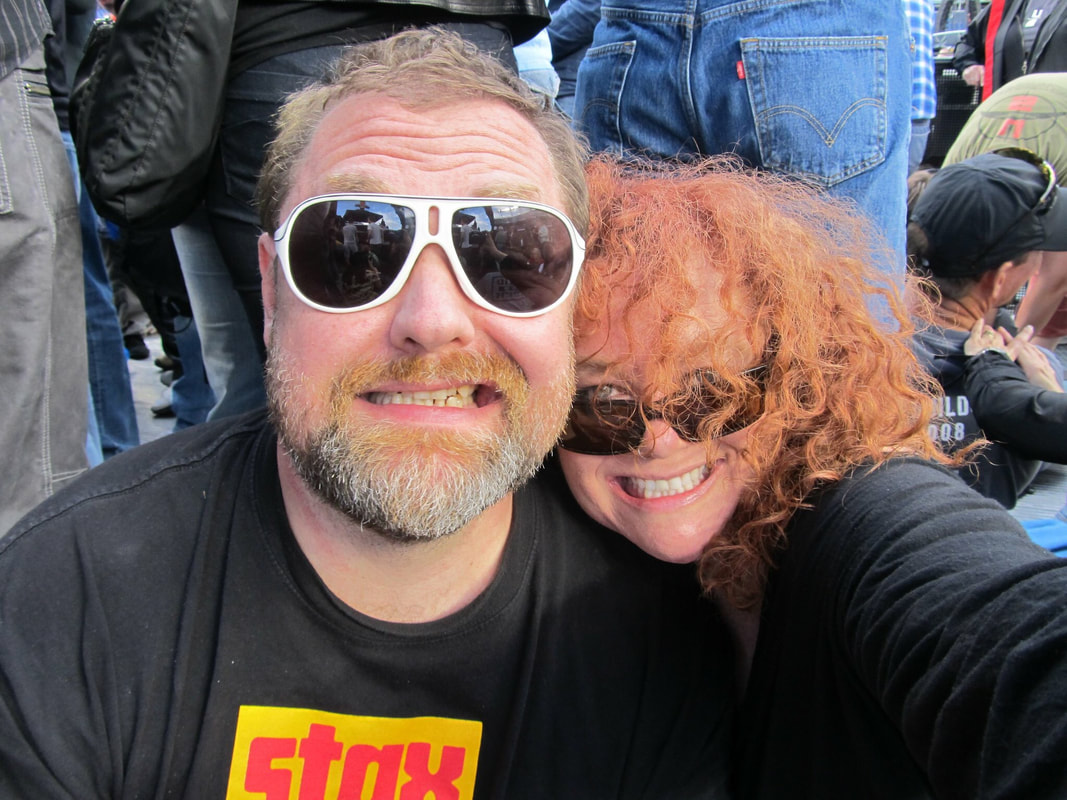
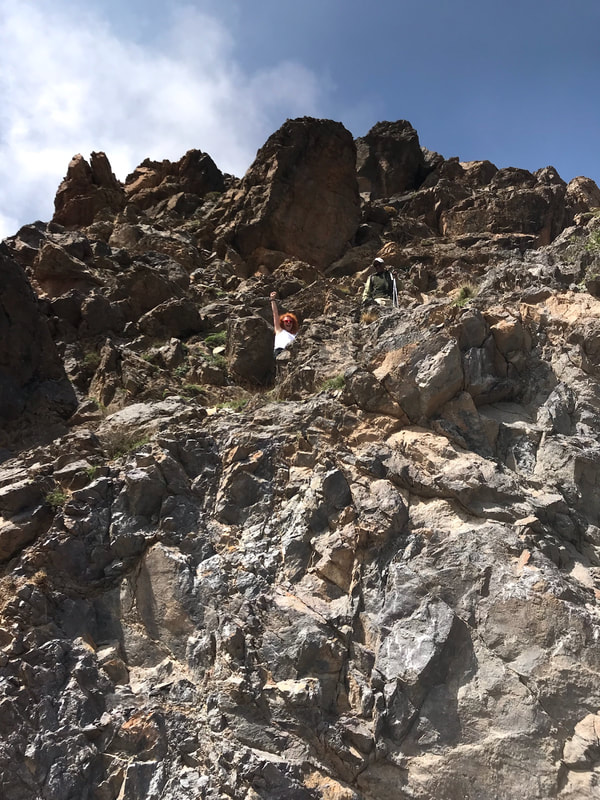
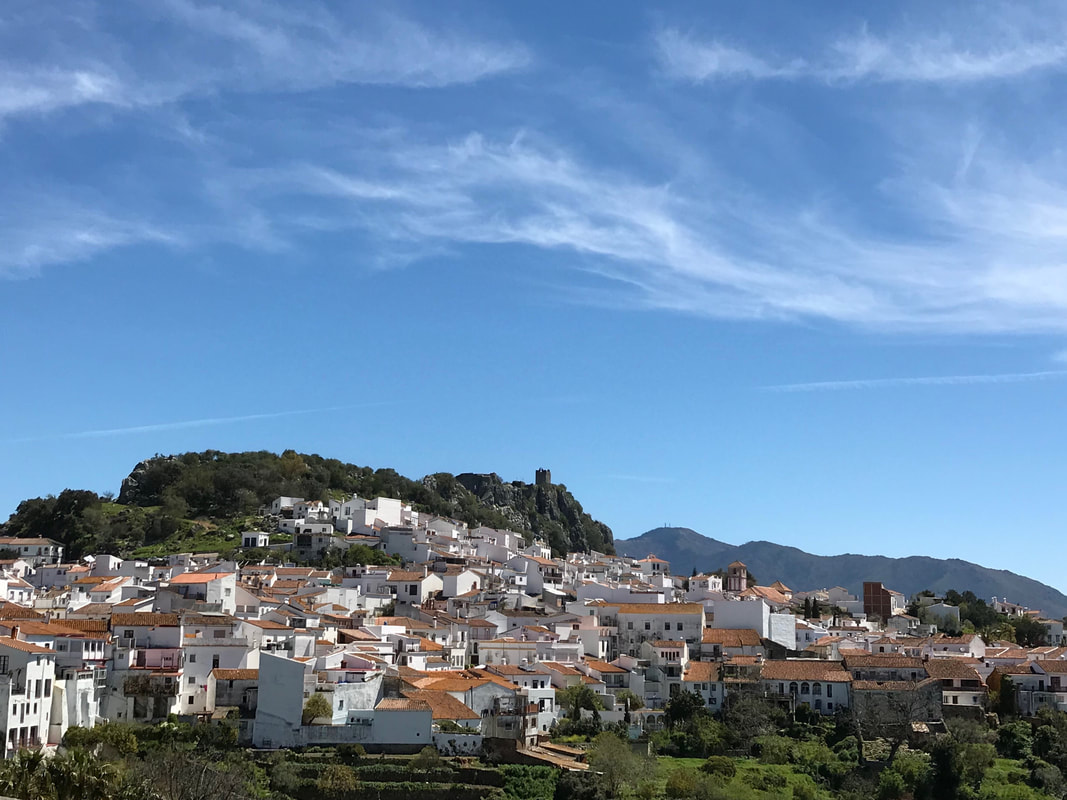
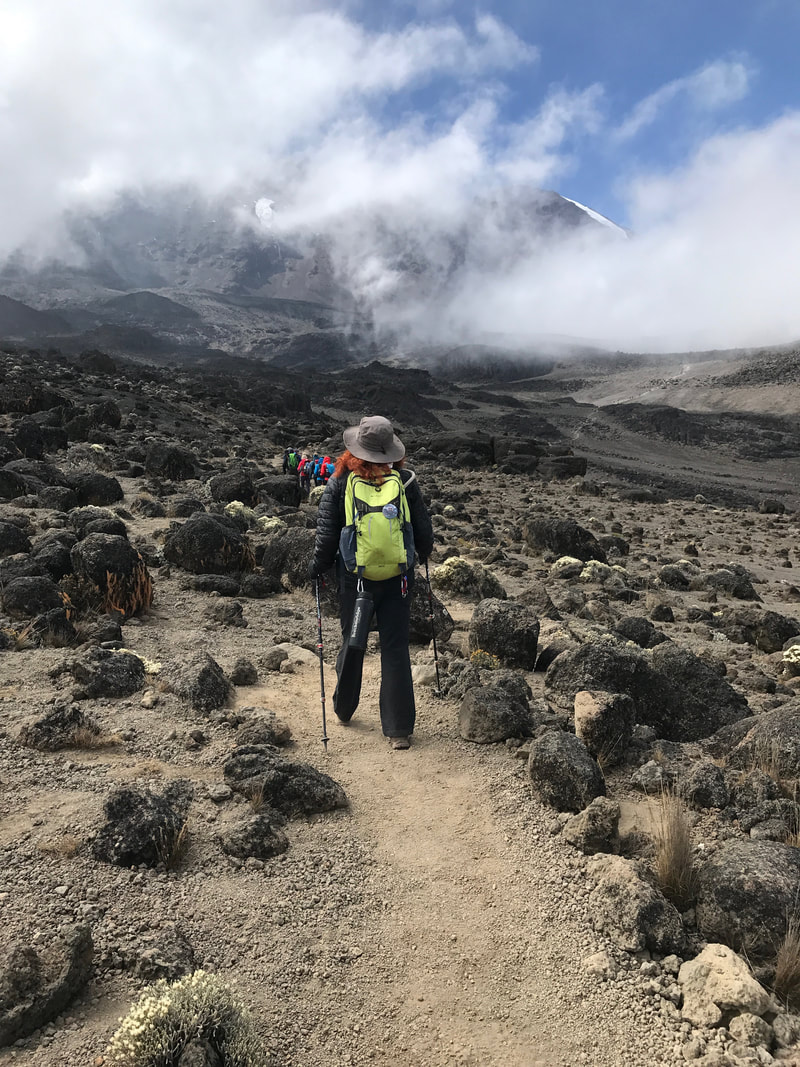
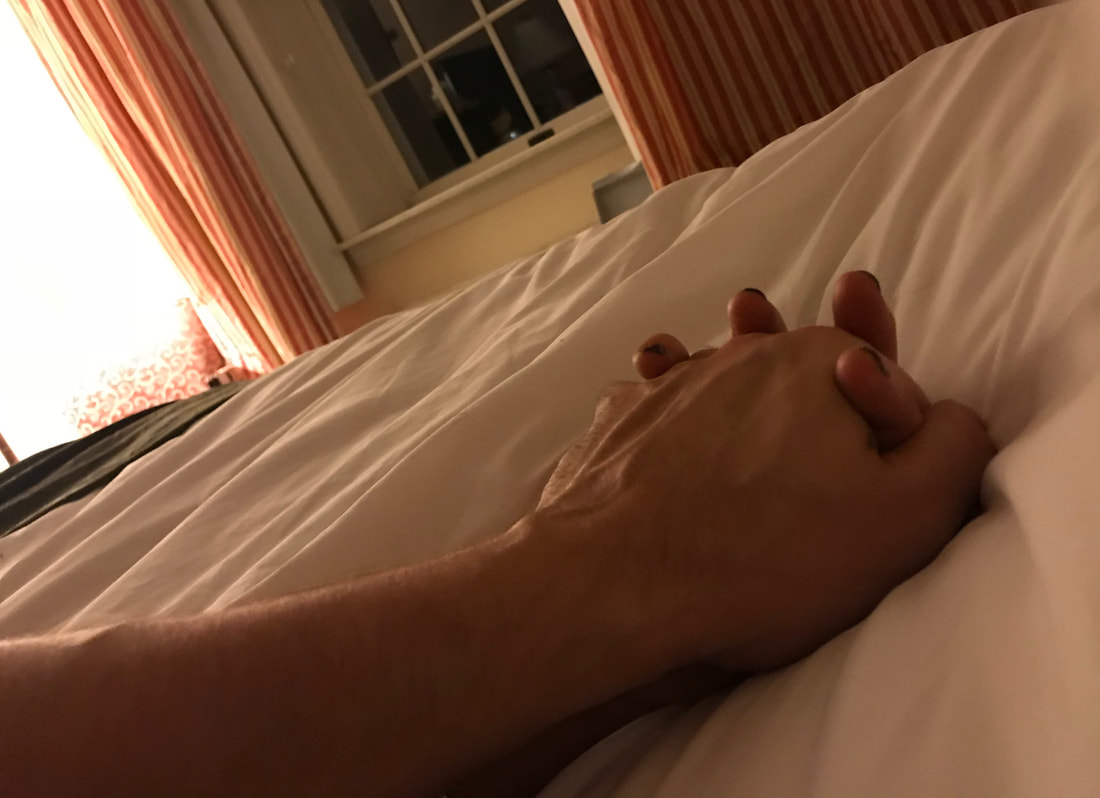
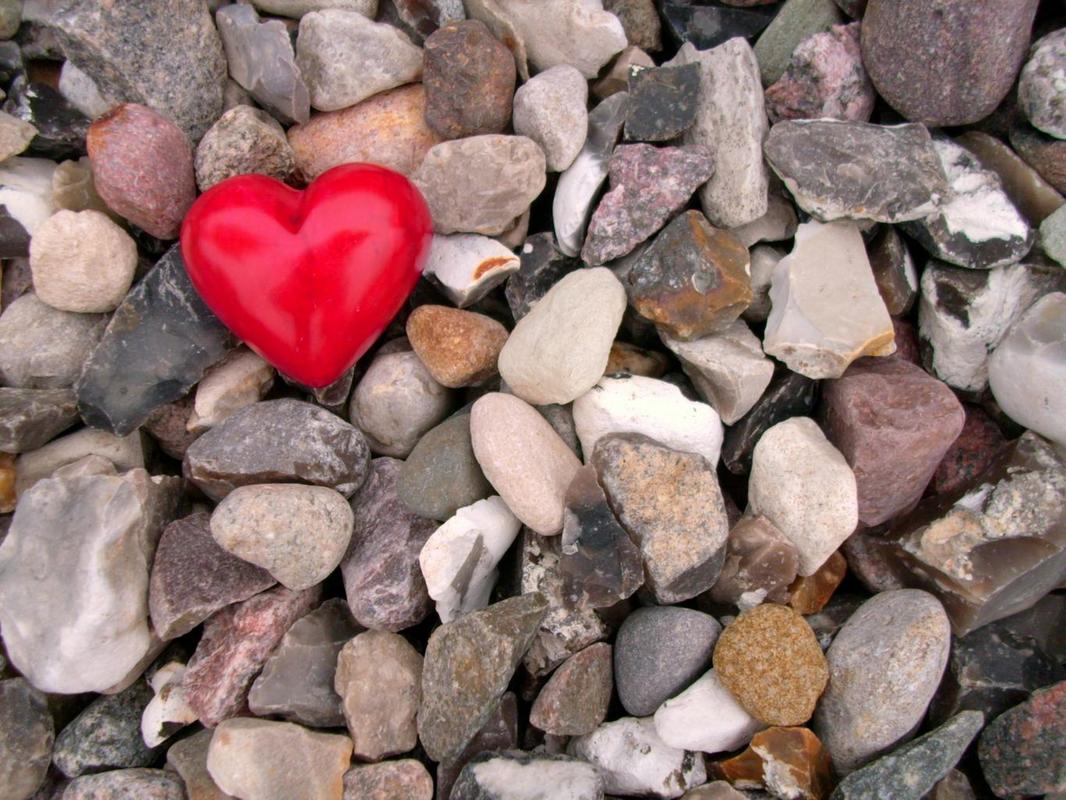
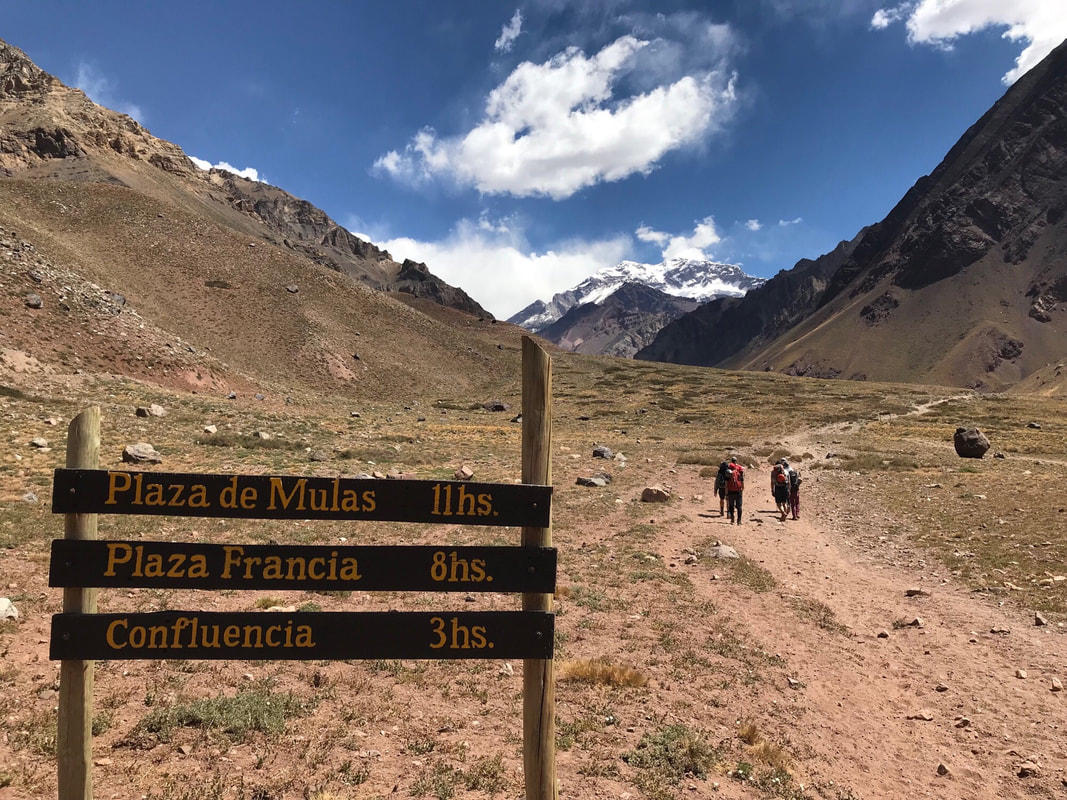
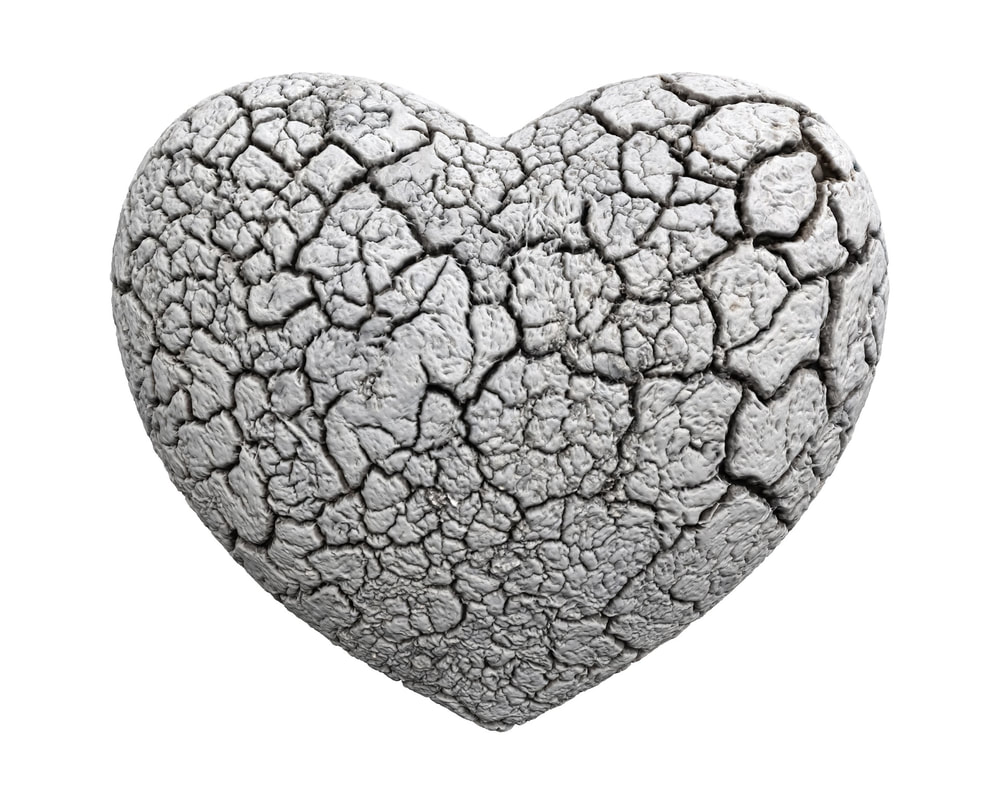
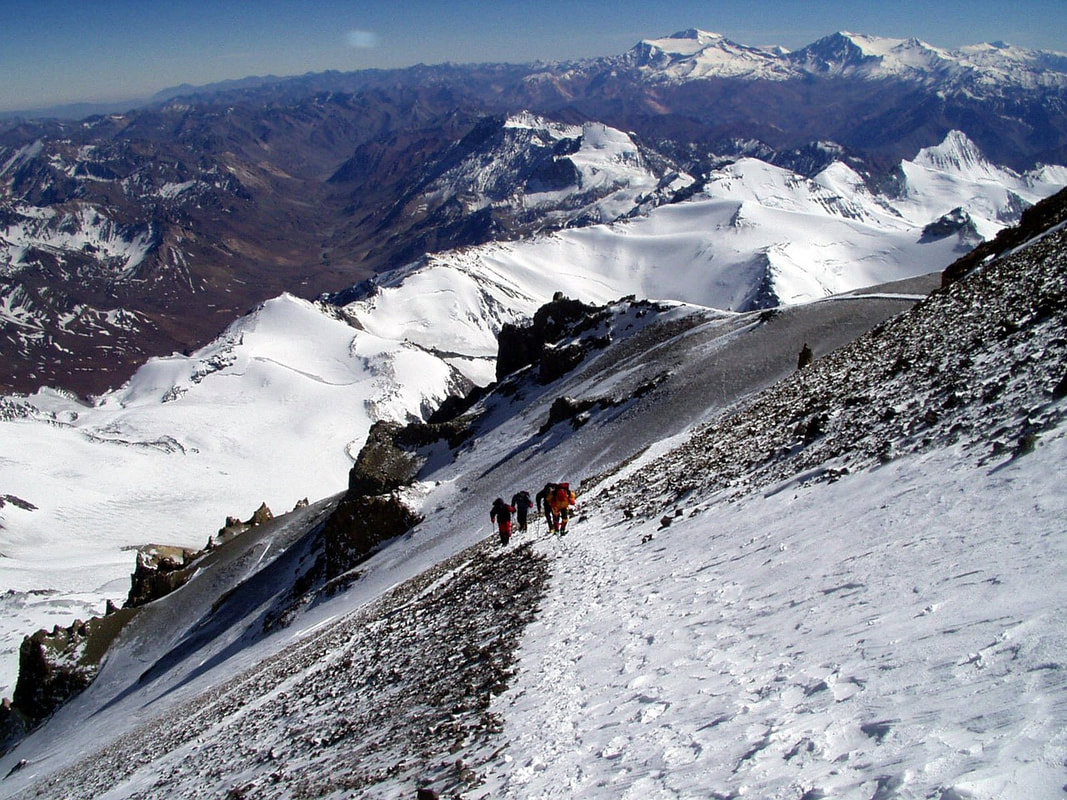
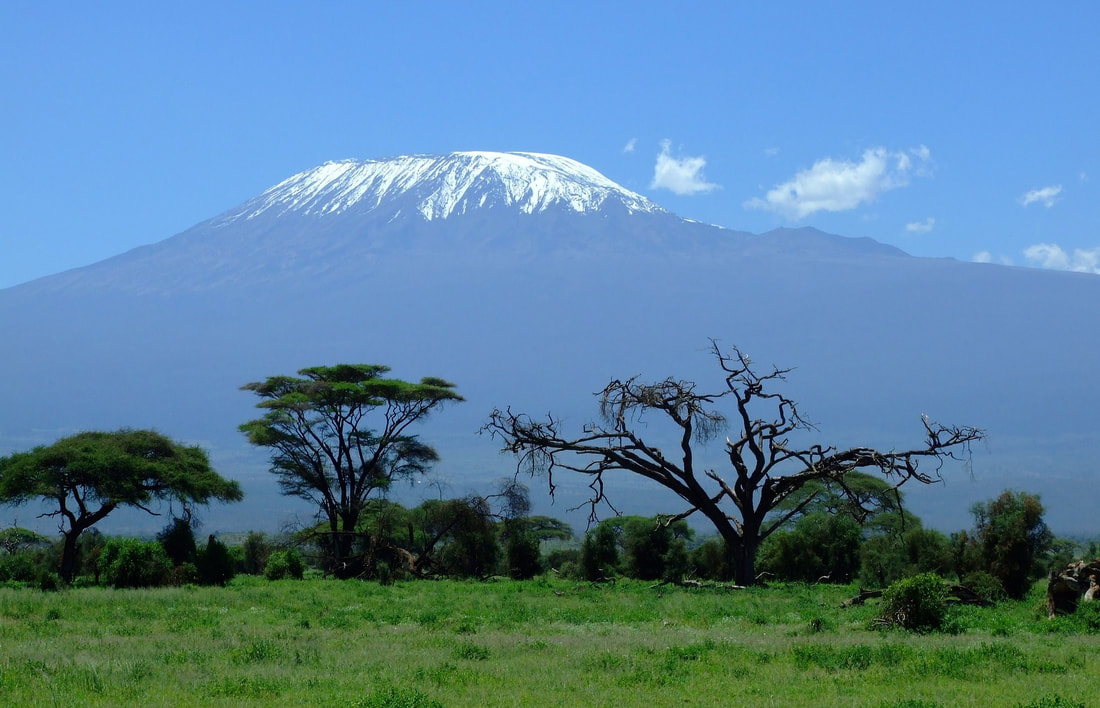
 RSS Feed
RSS Feed